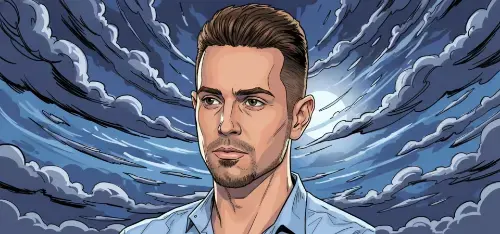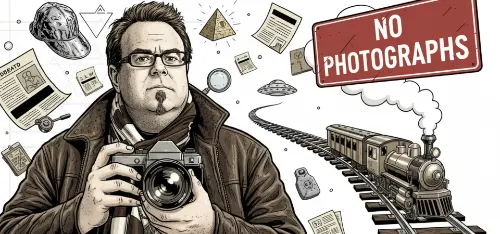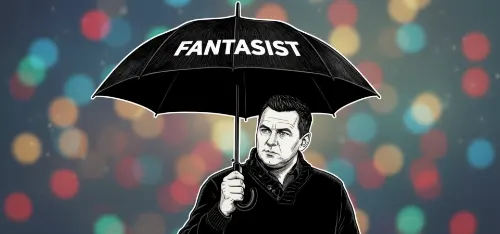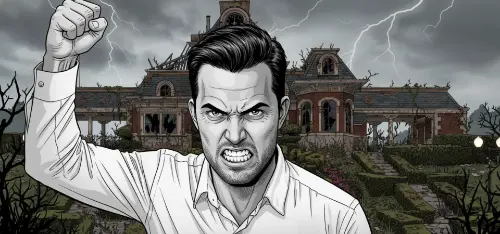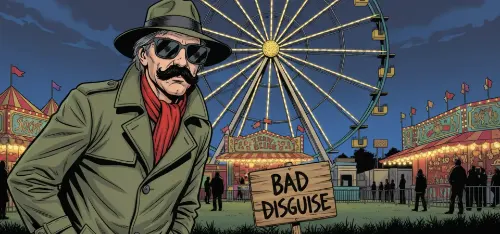Why the “Easy Payday” Claim Against Wade and James Is Deeply Misleading

March 15, 2020
Supporters of Michael Jackson often claim that Wade Robson and James Safechuck made up allegations of sexual abuse in an attempt to gain money through legal action against Jackson’s estate. But this theory doesn’t hold up when examined closely and leaves out several important points. Simply filing a lawsuit doesn’t mean someone will be awarded money. In reality, the legal process demands strong evidence, a convincing and consistent account, and the ability to persuade the judge or jury that the claims are true. This becomes especially difficult in cases of historic abuse, where incidents took place many years ago and supporting evidence or witnesses may be scarce or unavailable.
On top of that, many regions enforce strict deadlines—called statutes of limitation—that limit how long someone has to file a lawsuit, even if their claims are genuine.
In the American legal system, there’s a widely accepted principle that it’s better for ten guilty people to go free than for one innocent person to be wrongly punished. While this protects individuals from being falsely accused, it also raises the bar for conviction, particularly in older cases. Courts demand strong evidence and prioritise safeguarding the accused's rights, which can make it very hard for abuse survivors to receive justice. For these reasons, filing such lawsuits is often mentally exhausting, emotionally painful, and financially risky—with no assurance of winning or receiving compensation.
When looking specifically at civil actions taken against Jackson, many did not result in favourable decisions for the accusers. Former staff members, for instance, saw their claims dismissed and were even ordered to pay financial penalties for bringing unsuccessful suits. That track record challenges the idea that these lawsuits were straightforward attempts to make money.
The settlements made with the Chandler and Francia families happened while Jackson was still alive and under intense legal pressure, with possible criminal charges looming. These arrangements were private deals and didn’t involve courtroom trials. In contrast, Wade and James have chosen to pursue their cases through the official legal system—a significant difference. If their goal had been a quiet, profitable settlement, they could have tried to negotiate privately with Jackson’s estate, avoiding the risks and public scrutiny of a formal lawsuit.
Dispelling the Myth of a $1 Billion Lawsuit
It’s important to make clear that neither Wade Robson nor James Safechuck ever claimed hundreds of millions—or as some suggest, $1 billion—in damages through their legal actions. This widespread belief is frequently promoted by supporters of Michael Jackson, but it’s inaccurate. In truth, the legal documents submitted by Robson and Safechuck do not name any specific financial amount. Instead, they contain what’s known as a “prayer for relief,” which is a formal legal request asking the court for compensation or specific remedies without stating an exact sum upfront.
The actual financial outcome of their claims can only be determined once the civil proceedings reach a conclusion. Any awarded compensation would be based on multiple factors, such as the emotional and psychological harm caused by the abuse, the impact on earning potential, legal expenses, and ongoing costs of therapy. Because these financial losses vary greatly and are subject to court evaluation, even the plaintiffs themselves wouldn’t know how much they might be entitled to—if the unlikely outcome of a successful trial ever occurs. This makes it harder to argue that their intentions are driven purely by money.
The Complex Journey
Bringing a civil lawsuit for historic sexual abuse is extremely difficult, especially in the cases of Wade Robson and James Safechuck. Their legal path was blocked by several major issues.
First, Wade and James filed their lawsuits around 25 years after the alleged abuse, which created more problems than advantages. Contrary to claims by Jackson’s supporters, the time gap made their situation worse because their claims were too old under the statute of limitations, a law that sets deadlines for when people can sue. If someone files too late, their case is usually thrown out.
They filed two types of claims: one against Jackson’s Estate and another against his companies, MJJ Productions and MJJ Ventures. Wade filed in 2013 and James in 2014. Even though they tried to stretch the legal timeline, both sets of cases were dismissed in 2015 for being too late. They also couldn’t meet the exceptions required to extend the deadlines, so their lawsuits against the companies were dismissed in 2017. A major setback was that they couldn’t show that the companies had any legal authority to manage Jackson’s conduct, which was needed to hold the companies accountable under California Code section 340.1(b)(2).
Filing so long after the alleged incidents wasn’t a benefit—it made things harder. Memories fade and evidence becomes difficult to gather, and victims must prove what happened. But in October 2019, California passed AB 218, which gave survivors more time to sue. Then in January 2020, a court allowed Wade and James to refile their claims. These legal changes were unpredictable at the time they first sued.
Second, claims of historic sexual abuse aren’t typically filed for quick money—especially not when someone is facing financial trouble. Unlike more recent cases, lawsuits about long-past abuse involve unique legal problems and often take years, with multiple rewrites and appeals. Wade's case, started in May 2013, went through four revised versions until December 2017. By now, Wade's lawsuit has lasted over eight years and James’s for seven—hardly rushed efforts driven by financial urgency.
Third, Jackson’s death also caused a legal block. It means Wade and James couldn’t bring a criminal case, which requires the accused to be alive. So they went the civil route, which is common in child sexual abuse cases. Victims are entitled to seek financial compensation through civil claims when criminal action isn’t possible.
Their claim against the Estate was essentially an attempt to sue Jackson directly, since an estate legally stands in for someone after death. But there’s a short window to file these types of claims, and Wade and James missed it. This situation is similar to church-related abuse cases, where victims often can’t sue deceased clergy or their estates but instead sue the institutions for negligence.
Since Jackson couldn’t be sued directly, they turned to his companies, arguing that staff should’ve noticed the alleged abuse and taken action. These employees handled bookings, transport and trips—Jackson’s assistant, Norma Staikos, was named due to her involvement in those arrangements.
To hold employees legally responsible, the law required a clear work-based connection between the plaintiffs and the companies at the time of the alleged abuse. Wade had a contract with them during that period, which helped his case. But James didn’t have that same status, which weakened his legal position. Hypothetically, if he weren’t being honest, he could have made false claims of employment during the abuse to strengthen his lawsuit—though there’s no evidence suggesting he did.
More problems came from how the companies operated internally. Jackson owned them entirely, meaning staff had no power to control him. Because of this, the companies couldn’t be held accountable for his alleged abuse, and the court said they had no legal duty to protect the victims. Also, Wade and James weren’t in a fiduciary relationship—one involving trust or care—with the companies, further removing legal responsibility.
These legal issues led to the lawsuits being dismissed in 2020 and 2021 before reaching trial. Had Jackson been alive, they could’ve sued him directly, which might have improved their chances. The dismissals don’t prove Jackson didn’t commit abuse—they simply mean there wasn’t enough legal basis to hold the companies responsible. Dismissals came from technical decisions, like summary judgment and legal objections. Wade and James are still appealing as of November 2021, but the chances of going to trial remain slim due to these major setbacks.
They may continue arguing that someone still bears legal responsibility, but it’s a tough road. For example, the Catholic Church admits its authority over priests, whereas Jackson’s estate claims that MJJ Productions and MJJ Ventures aren’t liable because Jackson owned them—despite others working there. These strict legal rules make it very hard for Wade and James to succeed.
What if the Lawsuits Go to Trial?
It’s still a difficult process to navigate.
Once a civil trial officially starts, reaching a verdict tends to be fairly swift—typically taking only a few months. However, the lengthy part is often the lead-up: the pretrial phase can drag on, particularly when dealing with incidents of historical abuse, where records, memories, and witnesses are harder to access. A useful aspect of civil trials is that the standard of proof is lower than in criminal cases. Rather than needing to prove guilt beyond all reasonable doubt, civil claims rely on the balance of probabilities. This means the plaintiff only has to show that their version of events is more likely true than not. Also, a civil jury doesn’t require a unanimous verdict—just agreement from three-quarters of its members.
That said, Wade and James’s earlier sworn statements denying any abuse are likely to complicate matters for them. Even though public understanding of grooming and the psychological responses of abuse victims—such as denial—is improving, not everyone is fully informed or compassionate about these dynamics. Defence lawyers will almost certainly highlight their past denials to cast doubt.
In addition, for a negligence case to be successful, the plaintiff must establish several specific legal criteria—each one essential. Even if most jurors are persuaded by the allegations under the balance of probabilities, they might still conclude that some of the required elements for proving negligence against the companies haven’t been satisfied.
You can find a more detailed explanation of the legal requirements for a successful negligence claim at: findlaw.com
If the Chances Are Slim, Why Are They Filing Claims?
As both men said in the Oprah After Neverland Special (around the 36-minute mark)—it’s a chance to speak out for the children they once were. For Wade in particular, it’s about confronting a deeply painful part of his past and being honest about it now. Even if they don’t win the case, going through the legal process and standing up for themselves can support their emotional healing.
Taking legal action also strengthens how seriously their accusations are regarded. It moves the claims out of media discussion and into a court of law, putting them directly in front of Jackson’s estate. This doesn’t mean that survivors who don’t sue aren’t telling the truth—far from it. Legal battles in abuse cases are notoriously difficult, and many people are deterred by the emotional, financial, or social cost of coming forward. But when someone chooses to pursue their case legally, they’re showing that they believe strongly enough in their own testimony to try to prove it under legal scrutiny. Their claims aren’t just part of online commentary or one-off interviews—they’re being put into a formal setting where accountability is expected.
Even if they chose to speak out without taking legal action, they’d still be met with doubt and criticism. For some devoted fans, no amount of evidence or personal testimony will ever be convincing.
With or without a Lawsuit, Wade and James Have Still Profited?
Neither Wade Robson nor James Safechuck have been paid for appearing in the documentary Leaving Neverland or any related interviews. Even if making a film had been their intention, the timeline doesn’t support it—they spoke out about their abuse years before filming began in 2017, and the documentary wasn’t released until 2019. The idea wasn’t theirs; director Dan Reed was moved by their stories and approached them. He had to convince them to take part, not the other way round. After Wade spoke up in 2013, he only agreed to one television appearance. James, too, kept quiet—he didn’t speak publicly between 2014 and 2019. At the film’s premiere, they only gave a handful of interviews, which hardly supports the idea that they were chasing fame or financial rewards.
Wade went further by creating a charitable foundation and donating his own money to the Hawaii Community Foundation. Though he considered writing a book, he eventually chose not to pursue it. If his aim was to profit off Michael Jackson’s fame, staying publicly aligned with the singer would have made far more financial sense than speaking out against him. In fact, Wade had already auctioned off two Jackson-related items in 2011—his Smooth Criminal fedora and BAD tour gloves—to help pay for therapy, long before making any allegations. These iconic pieces had value on their own; selling them didn’t require him to accuse Jackson. Making abuse claims doesn’t usually result in riches—in many cases, it causes professional damage, especially when someone as well-supported in the industry as Jackson is involved. Wade had already enjoyed a successful career working with major artists like Demi Lovato, One Direction, Nicki Minaj, and David Guetta, long before speaking out.
One major reason Wade left Hollywood for Hawaii was that he didn’t find fulfilment in that world. He now prefers working on small-scale projects and keeping a low public profile—hardly the behaviour of someone seeking attention. Although Jackson fans have claimed Wade is building a career as a “guru,” the sheer volume of negative content about him online tells a different story. Numerous blogs, tweets and videos brand him a liar and opportunist. Most people would avoid such hostile backlash. Wade didn’t carry this reputation prior to speaking out—it was created and spread by Jackson’s defenders.
James Safechuck, too, shows no signs of seeking financial gain. He hasn’t pursued any commercial opportunities in the seven years since revealing his story—no books, no seminars, no side ventures. He holds a stable, well-respected position as Director of Innovation and Technology at a company, which further contradicts claims that he is driven by money.
Ultimately, the details suggest Wade and James didn’t accuse Michael Jackson for profit. Their long silence, refusal of media attention, lack of commercial activity, and established careers all point toward a sincere pursuit of justice, not personal gain.
With permission, the following article was translated and enhanced from The Truth about Michael Jackson.
